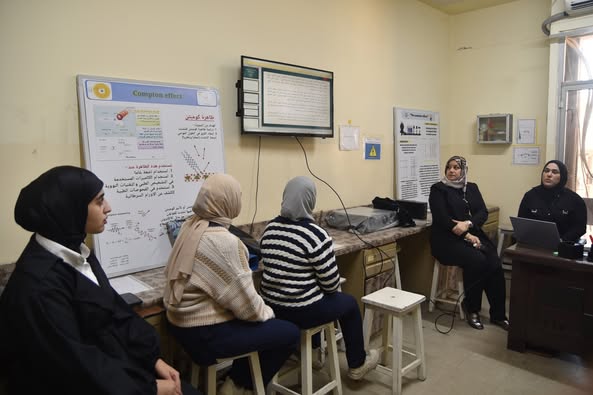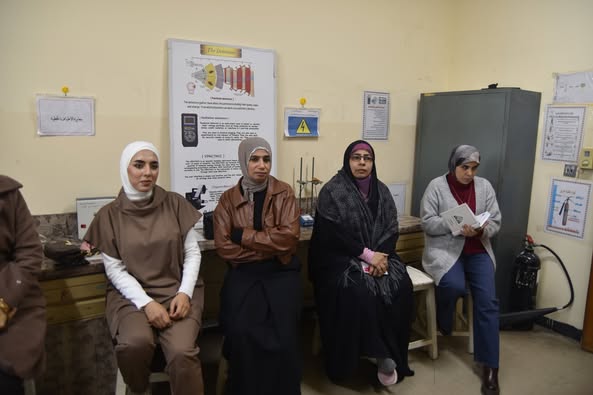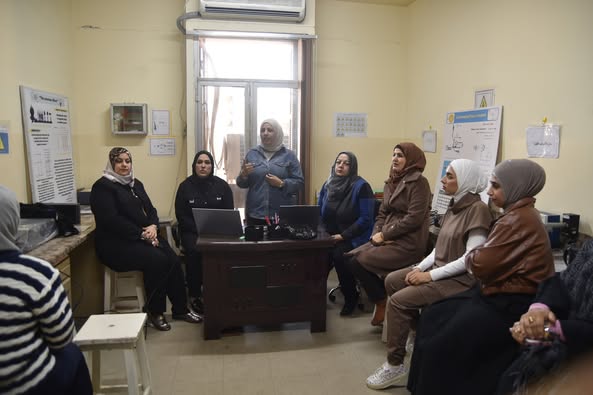Under the patronage of Dr. Samira Naji Kazem, the Dean of the College of Science for Women, the Department of Physics, in collaboration with the Continuing Education Unit, organized a course titled “Artificial Intelligence and the Challenges of Climate Change,” presented by Prof. Heba Khudair Abbas, Assoc. Prof. Nada Abdul-Fattah Mohammed, and Asst. Prof. Noor.
The aim of the course was to highlight the importance of artificial intelligence (AI) as a powerful tool in addressing the climate change challenges faced by our planet. AI can be utilized to analyze large climate-related datasets and predict weather phenomena, assisting in accurate long-term climate change forecasts. It also contributes to improving renewable energy strategies, such as enhancing the efficiency of solar panels or wind turbines, and optimizing energy management systems in smart cities.
On the other hand, AI faces challenges related to the impact of climate change on the environment of the technological devices themselves. High temperatures or extreme weather events can affect the effectiveness of AI-dependent devices and networks. Moreover, the development of AI could contribute to the depletion of natural resources and energy, necessitating further innovation to find sustainable solutions. The course emphasized that AI is an innovative solution to combat climate change, but it requires a balance between leveraging its technologies and preserving the environment.











